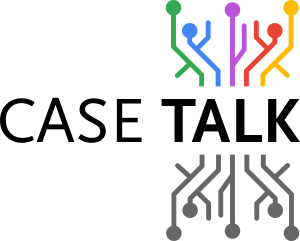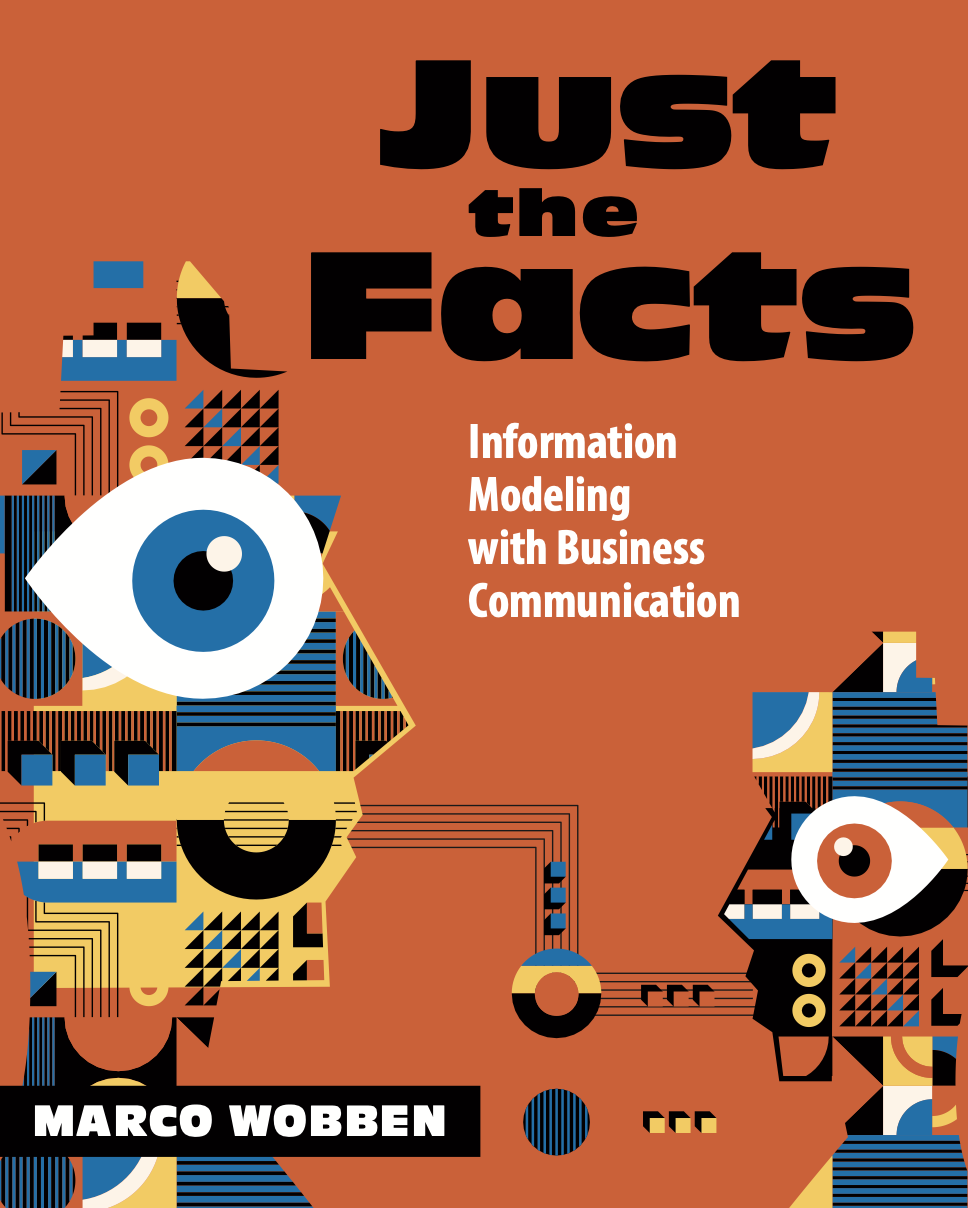Why opt for Fact Oriented Modeling?
Fact Oriented Modeling represents a data modeling approach that places a stronger emphasis on business-centric considerations as opposed to more technically-oriented methodologies. This approach serves as a vital bridge connecting the realms of business and IT.
Within modern data architectures, the framework laid out by Ronald Damhof featuring four quadrants highlights the substantial role of Fact Models in one of these quarters. Its effectiveness is underscored by its successful implementation within prominent institutions, including the Dutch National Bank, the Tax Department, and most recently, the Department of Justice and Safety in the Netherlands. Fact Oriented Modeling offers unwavering support for the vertical data architecture, encompassing the full spectrum of data elements, from legal frameworks, regulations, and procedures, all the way down to the precise definitions and their practical implementations in databases.
Why choose FCO-IM?
Fully Communication Oriented Information Modeling (FCO-IM) has its roots in 1990s university research conducted in the Netherlands. FCO-IM is designed to facilitate the modeling of business information in natural language, leveraging concrete examples. It enables the capture of business knowledge in a non-technical, conceptual format, while preserving the intricate semantics utilized by your business experts.
This approach to information modeling fosters robust business engagement, allowing for the comprehensive capture of business knowledge and the rigorous verification of deliverables. The advantages of heightened stakeholder involvement are multifaceted and encompass gaining deeper insights into business needs, bolstering data governance through improved shared understanding, constructing a unified business glossary, enhancing data quality, and mitigating maintenance-related risks and costs.
Why CaseTalk?
CaseTalk emerges as the tool of choice for modeling information using the FCO-IM approach. It effectively bridges the divide between business and IT, distinguishing itself through two essential functional pillars.
First and foremost, it empowers analysts and modelers to capture business facts and generate textual representations, enabling them to specify and verify the information model without the need for technical expertise.
Secondly, CaseTalk offers a diverse array of generators to kickstart your next IT project while ensuring complete alignment with the business requirements.
CaseTalk extends its influence as an educational resource, widely adopted in numerous colleges and universities across the Netherlands and around the globe. Its value has been repeatedly demonstrated, both in the context of small organizations and large enterprises.
The Significance of Training
While the facts themselves can be expressed in natural language with concrete examples, making them accessible and comprehensible to all stakeholders, the FCO-IM method necessitates a certain level of expertise. Notably, it entails subtle distinctions when compared to traditional logical and conceptual thinking, as well as systems design. To effectively harness this approach, training and knowledge transfer are imperative.
In a comprehensive three-day training program, participants will gain the skills required to effectively communicate with domain experts within their organization, enabling the precise and robust capture of business knowledge through Fact Oriented Modeling. They will also learn how to produce artifacts that serve as valuable system development specifications. Upon completing the course, trainees will be equipped to:
- Articulate the rationale and benefits of fact-oriented modeling.
- Convey knowledge in natural language, using concrete examples.
- Incorporate business rules and constraints into the information model.
- Create super- and subtypes as part of a business taxonomy.
- Perform model-to-model transformations and generate essential artifacts.
- Establish governance and organization for information models using metadata and a business glossary.
- Discern the intricate interplay between language, models, and artifacts.
key CaseTalk Features
CaseTalk offers a range of editions, catering to diverse user needs, from a free limited-book edition to educational versions for students at colleges and universities, as well as commercial options for individuals, professionals, and enterprise-focused teams. In brief, CaseTalk provides the following essential features:
- Natural Language Business Knowledge Capture: Facilitates the capture of business knowledge in natural language, making it accessible to a broader audience.
- Concrete Examples for Concept Support: Enables the use of concrete examples to bolster the understanding of concepts and types within the model.
- Term Definition and Governance Management: Allows users to manage term definitions, ownership, and other governance requirements, ensuring consistency and clarity.
- Deep Semantic Understanding with Fact Expression Grammars: Offers a profound semantic understanding through fact expression grammars, enhancing precision.
- Open Repository: Supports an open repository structure for seamless import/export of data to and from other tools, ensuring compatibility and flexibility.
- Extended List Generators: Provides an array of list generators for various technical artifacts, including XML, JSON, SQL, and more.
- Annotations for Transitional and Temporal Viewpoints: Facilitates the inclusion of annotations to accommodate transitional and temporal perspectives within the model.
- Drag and Drop Diagramming**: Offers a user-friendly drag-and-drop interface for creating diagrams tailored to Fact Oriented Modeling (FOM), Entity-Relationship (ER), Unified Modeling Language (UML), and Concept Map purposes.
- Enterprise Edition with CaseTalk Portal: The enterprise edition includes CaseTalk Portal for the publication of glossaries, enhancing collaboration and knowledge dissemination.
For a comprehensive view of the full feature set, detailed information can be found online.
Getting Started with FCO-IM and CaseTalk
To embark on this journey, it's crucial to recognize the reality of the business-IT gap. Once this awareness takes hold, it's no longer just about introducing a new tool to address the issue. Instead, it necessitates a shift in the organizational mindset regarding how IT operations are conducted. All technical professionals must align their efforts to enhance business performance and efficiency. The business's pivotal role and how its knowledge is protected, supported, and integrated require a paradigm shift.
Equipping your team with training, such as ELM Workshops or FCO-IM Training, is pivotal in fostering the expertise needed to facilitate this new mindset and way of working. On-the-job coaching, alongside practical implementation of the methodology, proves invaluable. As your new approach gains traction, you can start incorporating more information models, gradually expanding your information landscape.
Once you surpass the stage of individual models, it's time to implement a domain-based architecture. Managing multiple models, which often repurpose common definitions, is most effectively achieved through an enterprise environment. CaseTalk Manager steps in here, offering support for multiple modelers, model versioning, and definition lineage.
As your journey continues, consider adding a Portal atop the enterprise-wide model landscape. This portal serves as a centralized hub for publishing terminology, definitions, relations, and artifacts, providing a comprehensive view and enhancing collaboration across the organization.



